Matt Berry talks to SDE about The Blue Elephant
He discusses the new album and the importance of physical music
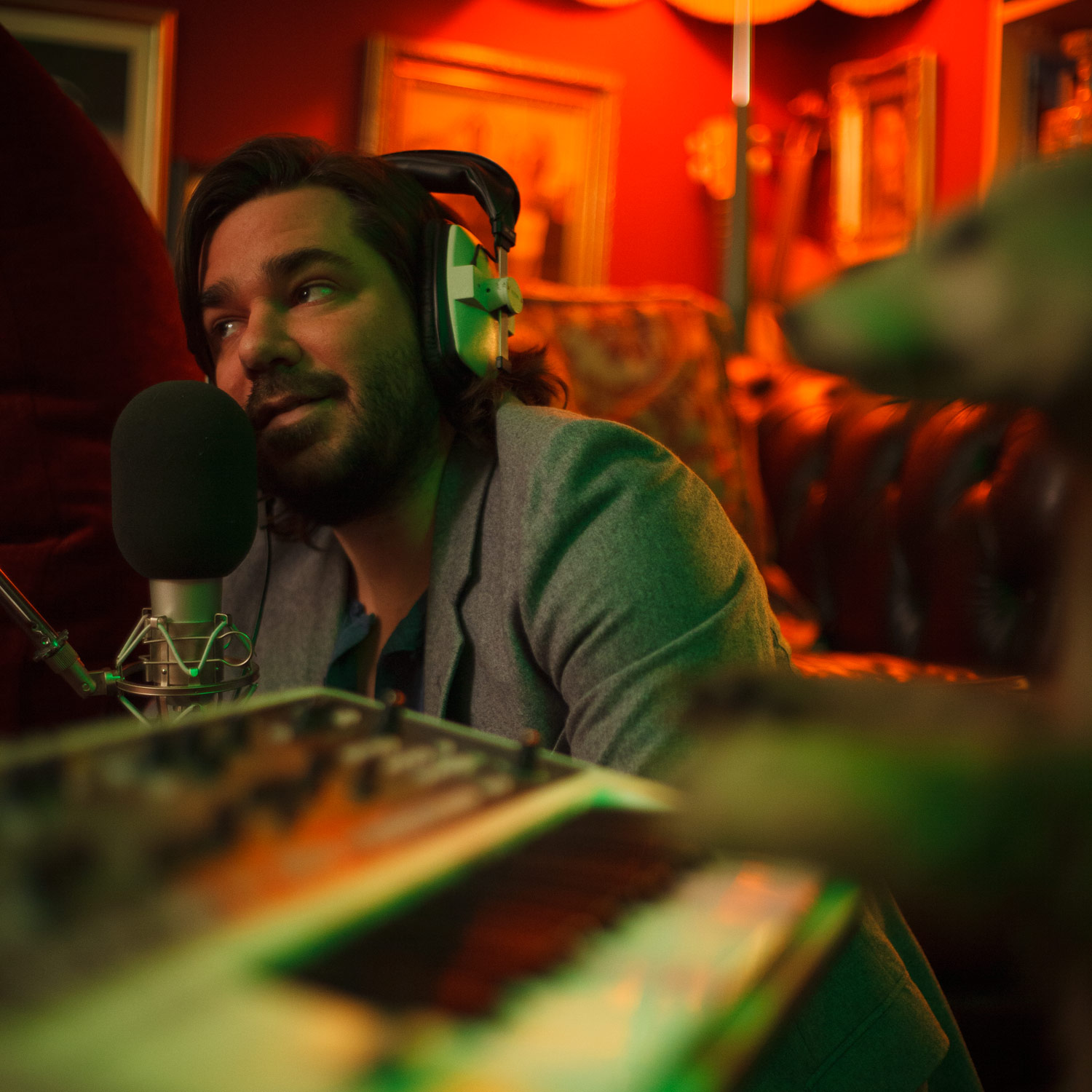
Matt Berry‘s new album The Blue Elephant is released next week, and SDE cannot recommend it highly enough. It’s a wonderfully evocative musical journey which embraces the trippy, psychedelia of the pop-rock scene of the late Sixties and early Seventies.
The album is almost entirely self-played and Berry also engineers and produces the whole thing. SDE caught up with him recently to discuss the record and Matt’s whole approach to recording…
How would you describe the new album. The Phantom Birds was very song-based, so I guess you were looking to do something a bit different?
Well, that’s exactly it. It’s basically a reaction to what I’d been making before, for a year or so… using techniques that were minimal, I guess. I was going back to that theory of the less you do, the more comes out of the speakers. And it was something that I enjoyed – I just had one guitar panned left, the drums panned right – it’s actually the other way around – and the bass dead centre and the voice dead centre. A sort of Dylan, Nashville or Neil Young way of producing it. That was great, but after doing that for a year or so I was ready to use more instruments and more colour, I guess.
How much did you plan out The Blue Elephant beforehand, in terms of the narrative and flow of the songs?
There was no plan in terms of which track goes where, or which track goes after anything. That’s all done at the end. In terms of the recording process it’s a load of ideas I’ve got where I see what I can do, whether that’s using two bass guitars once…. And a whole number of things, and it’s just whether the ideas will work or not. I think there were three tracks which didn’t make the album, so it’s just a load of different ideas and seeing how they fit together towards the end.
I guess with this kind of record it probably allows you more flexibility to use song fragments in an interesting way where you don’t necessarily have to slave over finishing a song with the traditional song structure?
Exactly, yeah. What Phantom Birds was, and possibly the album before it, was this kind of traditional song structure and I was just as interested in that, to see if I could pull off an album’s worth of beginnings, middle and endings. So by the time I did The Blue Elephant, I wanted to fuck all that and do a more freeform type of song, so you’re not sure if that chorus is ever going to come back, or is it just a great long intro? That has always been interesting to me, and that comes from bands like Roxy Music. I remember when I first heard For Your Pleasure, and ‘Do The Strand’, which was basically the chorus repeated the whole way through, and I thought that that was really interesting. And then a few tracks down the line you had ‘In Every Dream Home A Heartache’ where it’s just the verse the whole way through until there’s a solo section at the end. Those kind of ideas, those approaches had always interested me. Like The Cure’s ‘Push’ which is an intro that goes on for about three minutes before he starts to sing. So it was that kind of thing that was an influence on this.
The album has that wonderful, sixties, trippy, psychedelic vibe in places. You mentioned Roxy Music, what other early musical influences did you have?
I was pretty sensitive to music, so if someone played something that hadn’t been anywhere near the charts I’d be a load more interested in that. And that could be anything, like someone at school who plays the guitar and then has Led Zeppelin albums, and you’re like “What the fuck is this? The drums don’t sound like this on the stuff in the charts!” And I always looked backwards when I was at school… it wasn’t until maybe Nirvana came along that I was interested in what was currently happening, because up until then, it was bad house that was in the charts, when I was in my formative years. That was good in a way, because it did make me look backwards. And from that I found The Doors, and that changed a lot of things for me because never had I heard organ be placed as a lead instrument, and I was obsessed with the reverbs and things and that Sunset Sound slapback reverb – I’ve used that on this album and other stuff I’ve done. So these production techniques were a big influence. I mean, the influence for this album I’d say is albums made between ’67 and ’73, production-wise.
I want to ask you more about the production in a second, but first off, where does all this musical talent come from, because there’s this big long list of instruments that you play, on the back of the album. Where did the musical skill come from and have you had that since childhood?
It’s purely down to having no fear of any of it. My parents couldn’t play anything, so I was never pressured into learning theory and I still can’t – I can’t read music. So, they put an organ in my bedroom – that sounds terrible [laughs] – and as a result of that, I just became obsessed with it and recorded with it. I realised I needed a bass guitar and some lead guitar. I didn’t know anyone who was anywhere near me who could actually play those things, so learnt them myself. I loved learning them, took to them, and that was it. I’ve never really looked at it as a big deal, you know it was born out of necessity and the love of doing it.
But you’ve clearly got some natural talent. You’re not just banging out chords. There’s some pretty impressive solo work on both guitar and the organ…
I suppose that’s just the length of time. I’ve be doing this since I was 13. If you’ve been doing it for that long and you haven’t had a break. You know, some people play the guitar and then stop at the age of 20, or whenever and then they might go back to it when they’re 45. Whereas I haven’t stopped, I kept doing it.
I’m fascinated by people like Karl Wallinger or Paul McCartney who have played all the instruments on an album themselves, and obviously with this record you’ve done that – apart from the drums. Do you enjoy that process? It must be a lot of work. Don’t you waste hours sorting out technical issues?
None of it’s wasted. There’s no hours wasted because all those hours are spent experimenting and finding out what works, for you personally. I love doing it all, so for me, it’s sort of a joy and a privilege, to be able to do it all…
I guess there was an element of necessity, due to the pandemic, but would you have done it like this, anyway?
Oh yeah, I absolutely would have done it anyway. The only difference is I wouldn’t have finished it by now because I would have been filming, but luckily – for the album – there was no filming that year, so I managed to spend twice the amount of time on it that I normally would have done.
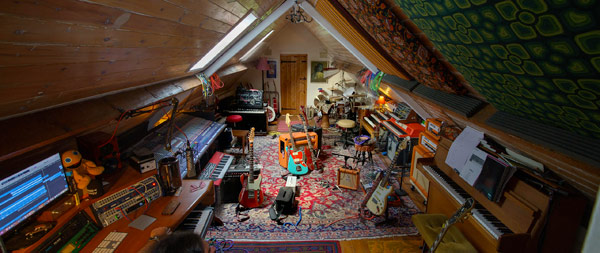
What about the production side of things, because you did mention production. With some artists, if you think of The Beatles, they worked with George Martin for seven years and when they come to do their solo work they’ve observed a master in action. How did you learn the art of engineering, production etc?
Well again, learning to engineer was the same as learning all these instruments. I was on my own and I had absolutely no choice. There was no one else back in the Witchazel days where I could say “could you come and mix this?” I had to do it all. But you just kind of learn that way, but I loved that side of things as much as playing. I get as much of a thrill out of working out what goes through the different compressors, you know, and how we’re going to get that flange sound on those drums at a particular point. With that, you kind of look backwards again, so I’m reading up on record production techniques of the 1950s, 1960s and 1970s…
You are like a real student when it comes to that stuff, aren’t you?
Yeah. This is stuff I look up in my own time. I love all that.
It’s not actually on the vinyl, but in the gatefold of the CD there’s a great photo of your studio set-up. Is that a home studio?
It is. I do all of my albums at home. Everything. Since Witchazel, it’s been done at whichever accommodation I’m in at that time. Back then it was London flats. Witchazel was done in a tiny London flat.
You’ve clearly got a love for vintage instruments and it looks like you’ve got a great collection. But how far do you take the authenticity? Are you recording to ProTools or are you trying to keep it as authentic as possible?
Yeah, I am but at the same time I don’t want it being a pain in the arse. So it’s not all analogue tape in case I tape over something which would be a fucking nightmare [laughs]. So how this works is you put it all through Logic and then you put it to tape and then put it back and by doing that you should capture the atmosphere of old-fashioned tape.
But you’ve got the flexibility of digital?
Yeah. And you talk of authenticity. A lot of that gear you see in that photo is stuff I got in the early ’90s that honestly didn’t cost anything. People didn’t want any analogue stuff back then and you could get analogue synths for £100. I worked at Tesco and everything I earned from Tesco went onto music equipment and a lot of it is there in that photograph. And I think it is important to use the real thing for lots of reasons, the most obvious being that if you all use the same plug-in and the same soft synths, as it were, everyone will kind of sound the same. Whereas with a lot of these things [the real vintage instruments] they will sound different because they’re all wired differently and that’s how you get the, sort of, faults with them. Say like a [virtual] Wurlizter…. Every note would be in tune and it would sound digital and so it would sound slightly dead. Whereas if you use the real thing, not every note is in tune, so you get these faults… It’s basically character.
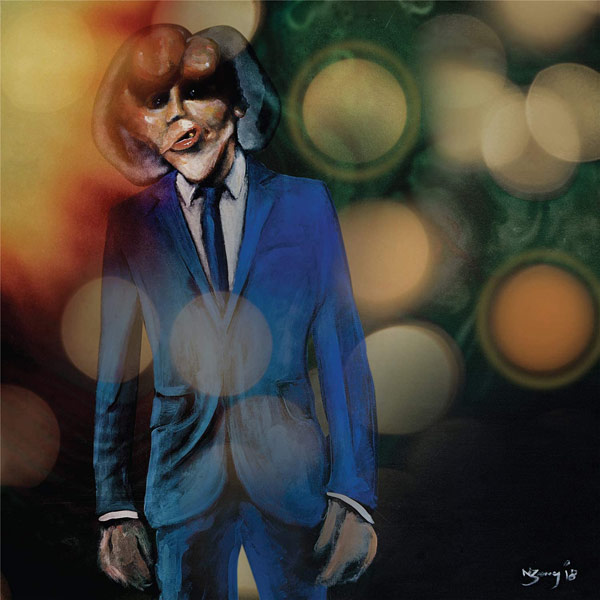
Tell us about the front cover. That’s your artwork. Do you have an obsession with the Elephant Man, or his story?
It’s not really the Elephant Man, although I am interested in the Elephant Man, but it’s more about being looked at and being stared at. It feeds into that… That’s the point of it.
And where does that come from? Is that because you feel a bit like that, now that you’re quite a well known figure?
Well… The intentions of getting into something, personally, are never about those kinds of things… The trappings of it. The only thing I wanted to do was either to play my guitar, or dick about in comedy for money, so I didn’t have to get any kind of normal job. That’s alway been my sole motivation, to get away with this for as long as I could, so I didn’t have to go back to telesales. And the world that we’re in now is very unforgiving of people that are well known. It’s all that kind of stuff, I mean I never want to explain this kind of thing too much, because it’s up to other people to get what they want from the imagery.
In an ideal world, would you like to do just the music or do you enjoy all aspects of your work? I was wondering if you see the acting as an ‘enabler’ to allow you to do music?
No, no, no… I’m very fortunate to be able to do both. I get a massive thrill when coming up with something on set with other people that are into the same thing as you. Creating things, whether in the studio or with a cast, I get a thrill out of both.
What do you think of the music ‘industry’ at the moment, because this era that you are harking back to, in terms of the sound of the music, is a like a golden age for albums, rock bands and the like. But we are in a very different place now, where some people can’t be bothered to even listen to one song all the way through, properly, never mind an album. Also, if you were doing just the music you might not be able to earn a living…
Well I’d have to be touring all the time, and try and be clever about it, if it was my main job. I get that, but yeah, it’s completely different [now]. But that’s no fault of this [new] generation, it’s the fault of the commerce and the platforms. Whenever you apply business to art there’s always going to be a fuck up, or something that is unpleasant. And having these platforms where the artists don’t get paid – that isn’t good enough. But it was obviously going to happen. And you know, the other disappointing thing is that if people don’t have to pay for something, or they don’t have to go the extra mile for something, then they might not. I’m not saying everyone is like that, and lots of people do buy the album from the artist, but it’s easier not to and that makes a big difference, doesn’t it?
Totally. But it’s clear looking at the physical formats for The Blue Elephant that that is important to you. How something looks, how it feels…
It’s really important. You know, because you want value for money and you want these things to be tangible. I don’t just want this to be some fucking thing on someone’s phone, which doesn’t even have an album cover, or even any track names. I haven’t worked hard on it for it to end up like that. It’s not good enough for it to end up like that, it’s too lazy. But I am encouraged with how many labels now are doing physical and different formats. That seems to be growing and – you’ll know this a lot more than me – but there does seem to be more physical coming from smaller labels…
I think people have started to understand that if they want people to fork up the cash, it needs to be worth it and it’s more than just the audio; it’s the whole experience. This is why vinyl has made a comeback… Your Blue Elephant artwork, for example, looks so good on the larger, 12-inch format.
Exactly. And it was made for that. It wasn’t made to be a bloody thumbnail…
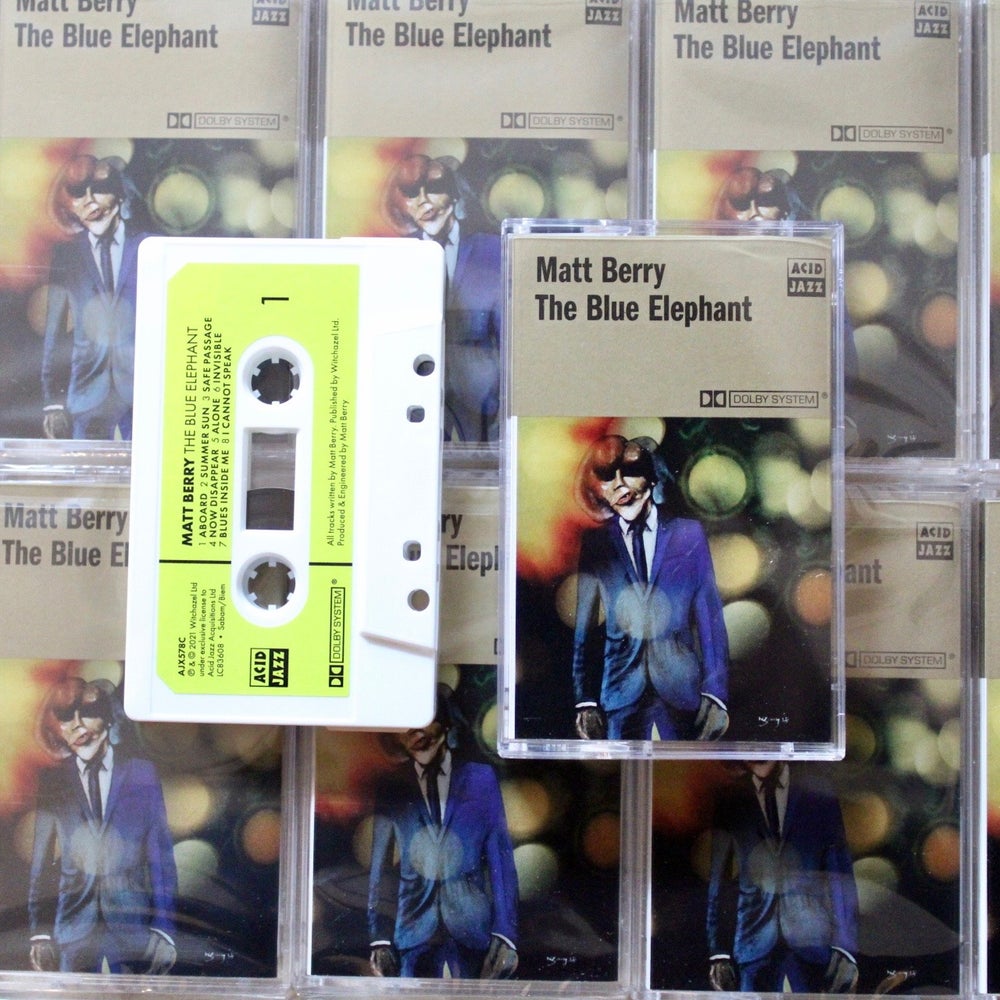
But we should talk about the cassette, this is the perfect time to do that, because you’ve created a tape in the style of those EMI-style cassettes from the 1970s, in exacting detail. Why did you want to do that then?
Growing up, these are the sort of things that always used to be on top of people’s gloveboxes – in all cars! It didn’t matter whose car you were in…
My dad had the entire Beatles catalogue on those tapes and we used to listen to them in the car.
Well you were lucky. I had to go to other dad’s cars, because my dad didn’t have any tapes, but yeah. Any dad’s car you went in there was always a bunch of those on the glovebox. And it was always things like The Dark Side of the Moon, or Rumours…
ELO was always one…
Exactly. And it was an event to have one of those on your glovebox and in your car. It was part of life. It’s so sad that all that has gone… You don’t know what anyone’s into now. And they’d be on the back seat, too. I can even remember being in a mate’s dad’s car and on the backseat he had a Jimi Hendrix tape. And I didn’t know who Jimi Hendrix was, but I knew that it looked good. Do you know what I mean? If you are interested in that stuff then it does stick in your mind. So the tape [of The Blue Elephant] was important. And it works, it’s not just an ornament.
The interesting thing about these tapes is that EMI used to muck about with the running order just to balance it out. So if you’ve got Revolver on one of these tapes it starts with ‘Good Day Sunshine’ – it doesn’t start with ‘Taxman’.
I know and the artists used to go fucking mental. I’ve heard that many times that the record companies would do that…
Talking of The Beatles, I did notice… you’ve obviously had a lot of fun with the new album, with little nods to other music, or other styles of music or whatever, and I have to put my hand up and claim a prize or something… Because you have the piano intro to the Anthology 2 version of ‘A Day In The Life’ in the mix. When I first heard it I thought “ooh, why is that familiar?”
[laughs] Well done! Well spotted… but not only that, I’ve recreated all the bit that goes up to that. So the harpsichord, the phone, the organ… I did it exactly.
That’s brilliant
I’ve always wanted to do it and in the past have been a bit nervous of doing that before a song, but this album was the perfect place to do it. But that was fun. That was a whole morning of listening to the original, stopping it. Doing it. Making sure it sounded exactly the same!
It’s those kinds of things that enrich it, I guess. Who is your audience, by the way? Do you know who they are, how do you get feedback from them?
I’ve no idea. I’m my audience [laughs]. It’s like the comedy. It’s done to make me laugh. It’s done because I’ve enjoyed it. It’s not done for anyone else, or to second guess an audience.
Are you going to tour the record? I saw you play live at the Royal Albert Hall a few years ago and I was trying to remember who you were supporting and of course it was Steven Wilson. You’ll have to teach the band all the parts, which could take a while. You obviously love working in the studio, so how much do you enjoy the live experience?
I love it. And the band that I’ve got would be able to learn this stuff in an afternoon.
Is that The Maypoles?
Yeah.
So do you think you will tour it, or are you just going to move on to the next project?
Well, it depends. It’s all down to filming and whether we’re allowed to. I don’t think we’re going to be allowed to tour until the end of this year. And then I might be filming again, so it would all kind of depend on those two things.
One final question. Mentioning Steven Wilson made me think of it. This kind of record would sound amazing in 5.1. Have you got any interest in surround sound?
Possibly, yeah. And Steven would be the one to do it. We worked together… I say ‘worked’, I consulted very briefly on the Tangerine Dream box set he did [In Search of Hades]. It sounds fancier than it actually was, but because I know those albums all so well, it was basically him asking me how much he had deviated from the album that I remembered. And I’d say something like “that synth didn’t sound anywhere near as bright as it does know”. But yeah, if that was to happen it would be with Steven.
Thanks to Matt Berry who was talking to Paul Sinclair for SDE. The Blue Elephant is released on 14 May 2021.
Compare prices and pre-order
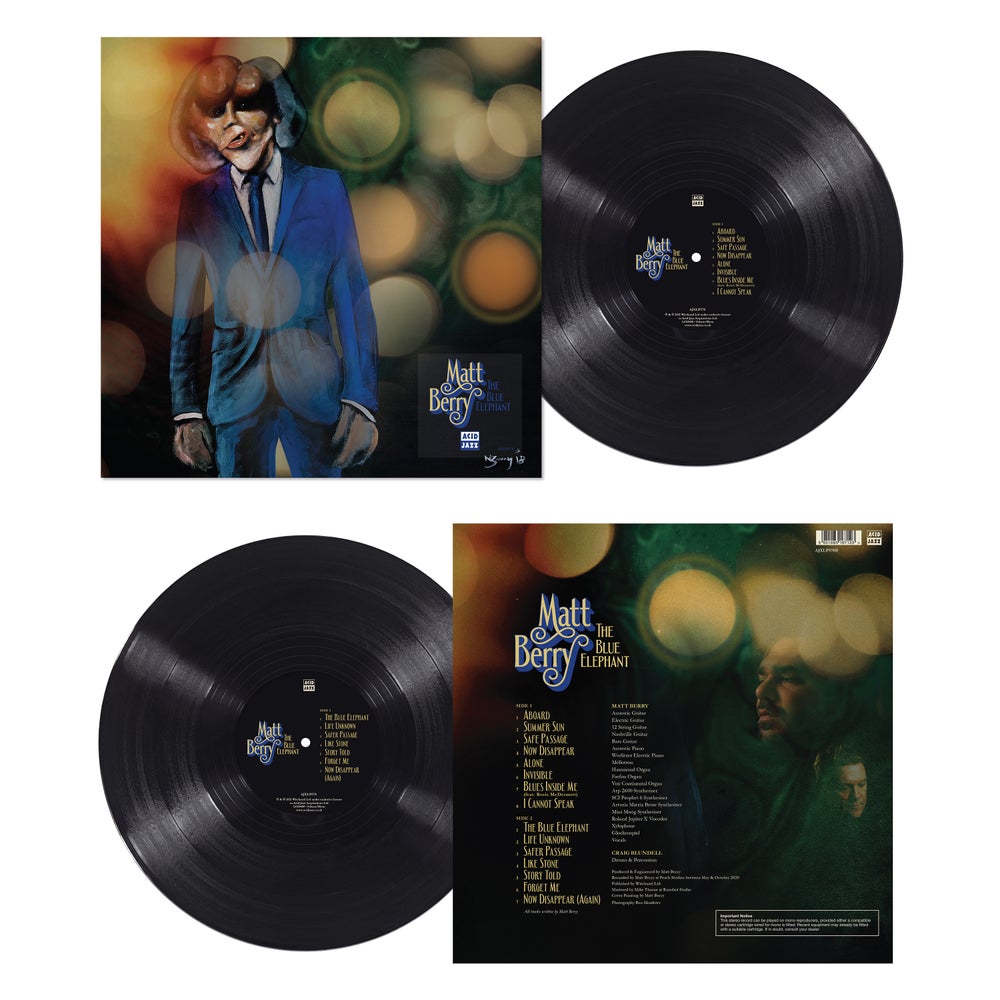
Matt Berry
The Blue Elephant - black vinyl
Compare prices and pre-order
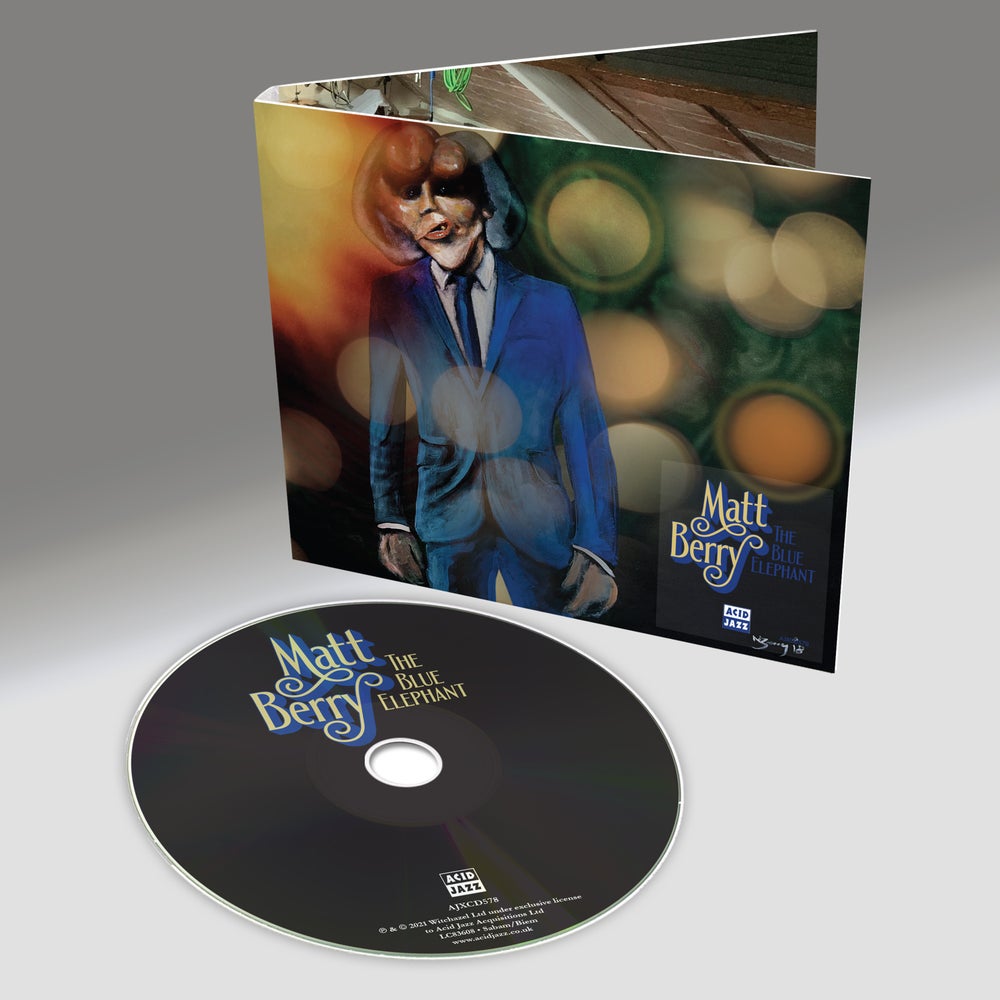
Matt Berry
The Blue Elephant - CD

|
|
||||||||||||||||||||||||||||||||||||||||||||||||||||||||||||||||||
Compare prices and pre-order

Berry,Matt
The Blue Elephant - cassette tape

|
|
||||||||||||||||||||||||||||||||||||||||||||||||||||||||||||||||||
Tracklisting

The Blue Elephant Matt Berry / Vinyl LP
-
-
Side One
- Aboard
- Summer Sun
- Safe Passage
- Now Disappear
- Alone
- Invisible
- Blues Inside Me
- I Cannot Speak
-
Side Two
- The Blue Elephant
- Life Unknown
- Safer Passage
- Like Stone
- Story Told
- Forget Me
- Now Disappear (Again)
-
Side One
Matt’s 2009 album and debut for Acid Jazz
Recording studio software

 Interview
Interview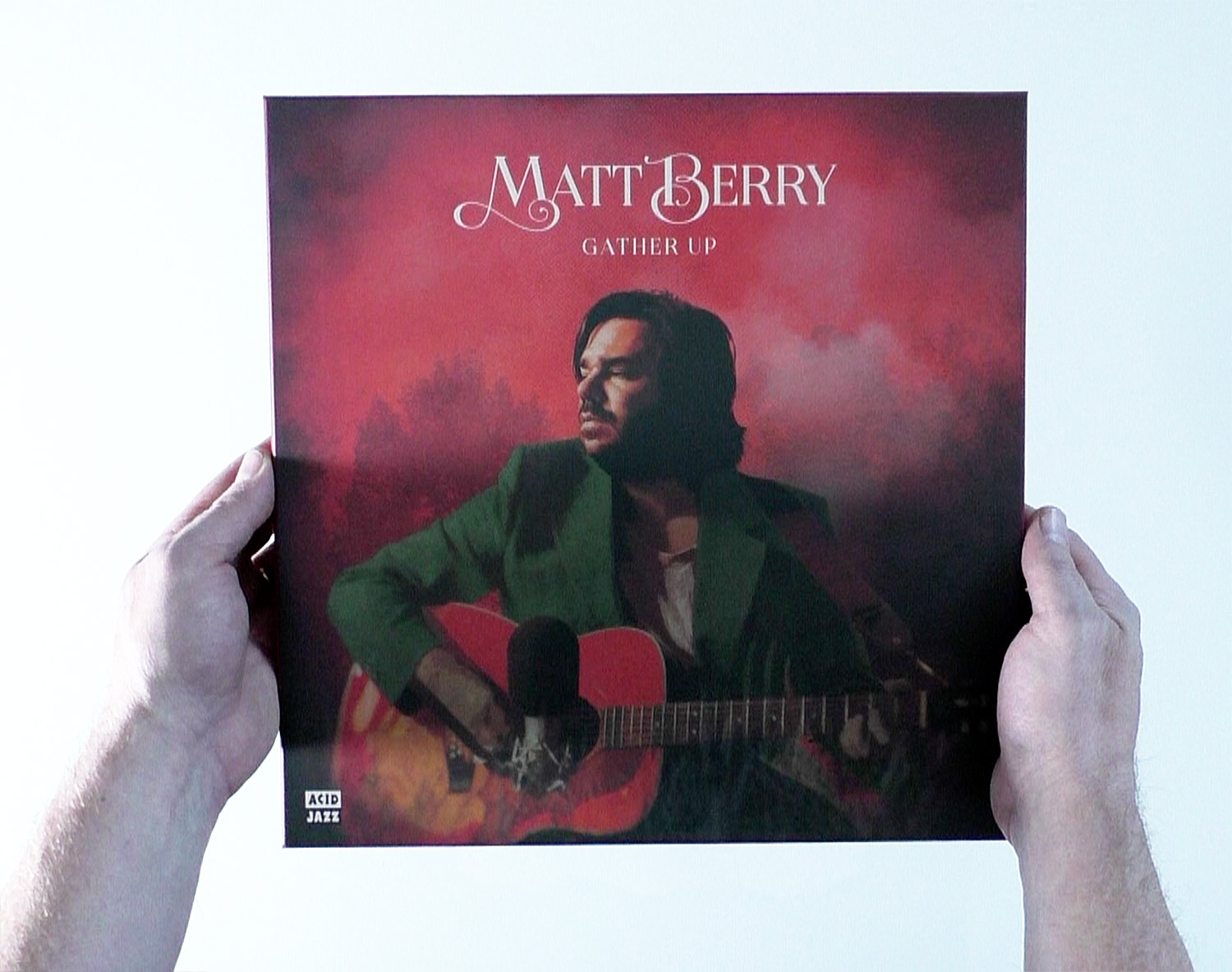
 SDEtv
SDEtv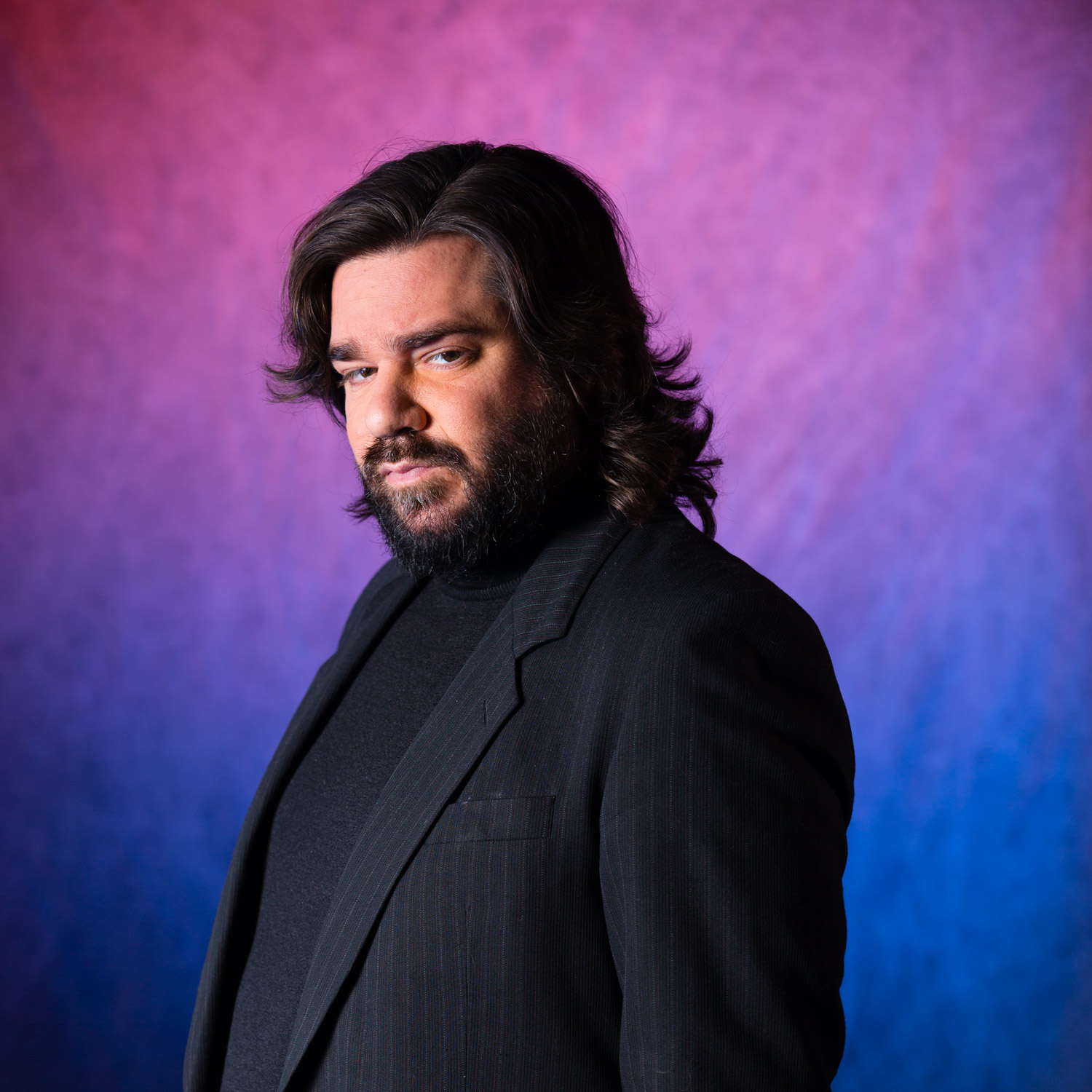
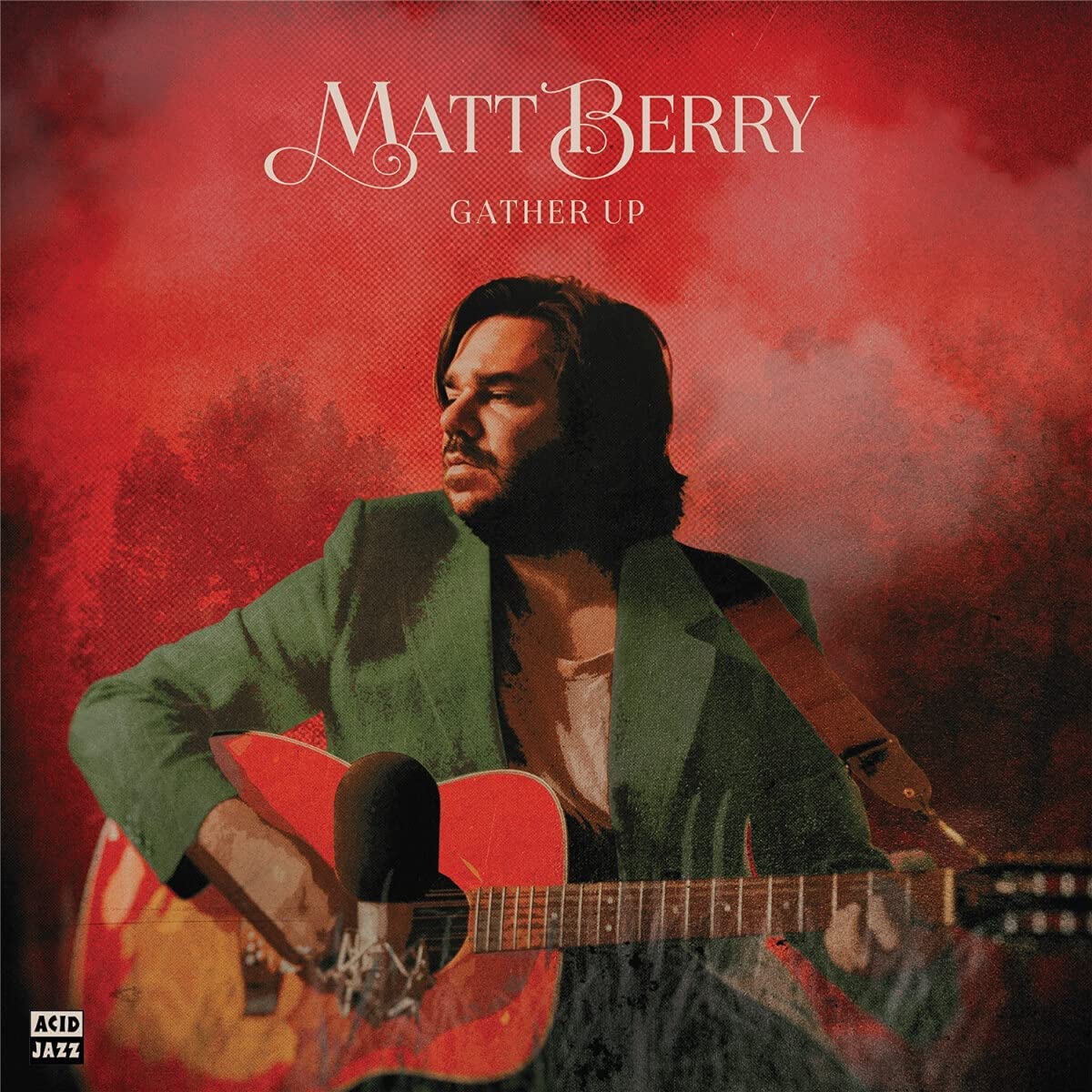
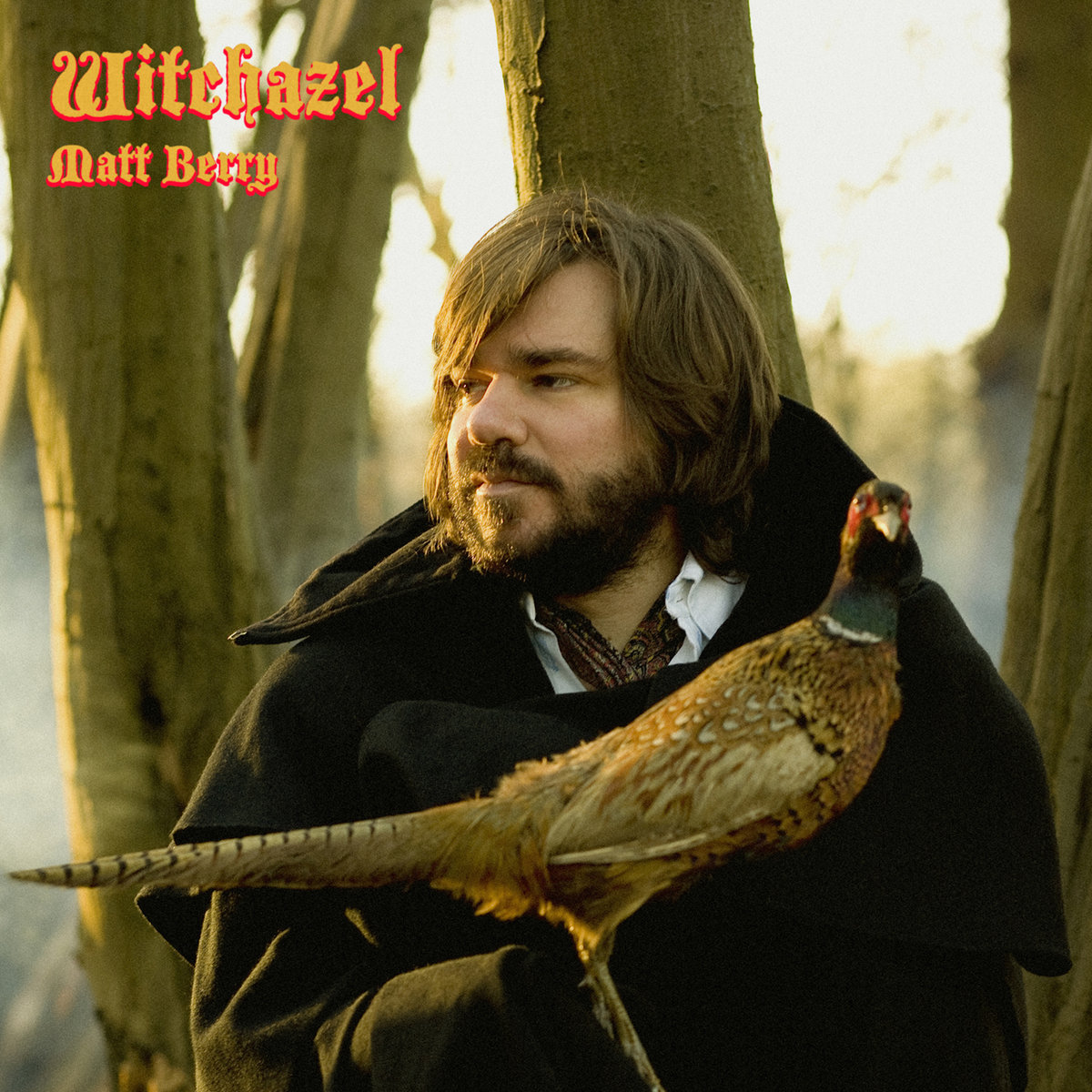
By Paul Sinclair
17